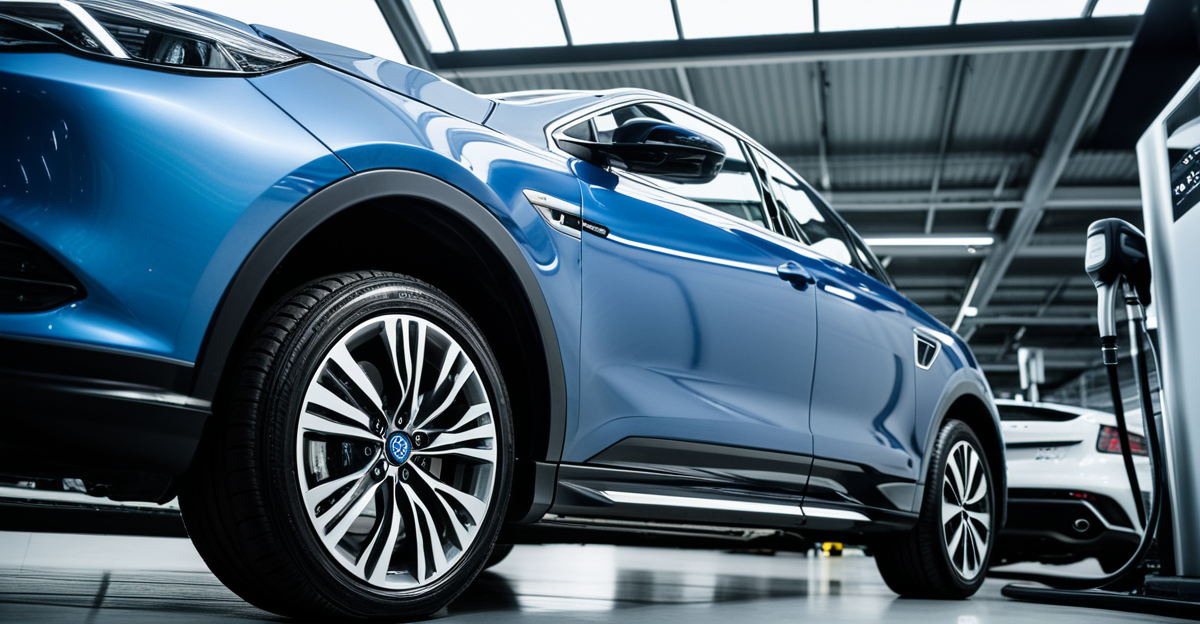Core strategies for improving fuel efficiency in UK-made traditional vehicles
UK automakers are investing heavily in fuel efficiency innovations to enhance traditional vehicles without fully abandoning combustion engines. One key approach is refining engine design. Recent advancements include optimizing combustion processes, improving fuel injection systems, and enhancing turbocharging to maximize power output while minimizing fuel consumption.
Another important strategy involves the use of lightweight materials like aluminum and high-strength steel. These materials reduce vehicle weight significantly, cutting energy required for propulsion. UK manufacturers are also streamlining manufacturing techniques to integrate these materials efficiently, balancing durability and lightness.
Also read : How Can Technological Innovations Reshape the Future of the UK Automotive Industry?
Integrating hybrid technologies within conventional models is becoming common among UK automakers. Mild hybrid systems, for example, assist the petrol or diesel engine during acceleration and enable energy recovery during braking. This reduces overall fuel usage while maintaining driving dynamics familiar to traditional vehicle enthusiasts.
Together, these strategies demonstrate how UK automakers blend traditional combustion powertrains with innovative technologies to meet fuel efficiency goals without compromising performance. This approach benefits drivers seeking improved mileage alongside conventional driving experiences.
In parallel : What are the key innovations driving the UK automotive sector?
Core strategies for improving fuel efficiency in UK-made traditional vehicles
UK automakers continue to push the boundaries of fuel efficiency innovations by refining core elements of traditional vehicles. One of the most significant advancements in engine design is the enhancement of combustion efficiency. By precisely controlling fuel injection timing and optimizing combustion chamber shapes, manufacturers can extract more power while reducing fuel consumption and emissions.
In terms of materials, the adoption of lightweight materials such as aluminum alloys and high-strength steel remains crucial. These materials lower overall vehicle mass, directly improving fuel economy by requiring less energy for acceleration and maintaining speed.
Moreover, hybrid technology integration plays an increasingly vital role. Many traditional vehicles now incorporate mild hybrid systems that work alongside conventional engines. These systems provide electric torque during acceleration and recuperate energy through regenerative braking, which significantly reduces fuel usage without altering the driving experience. This combination of engine design, lightweight construction, and hybrid technologies exemplifies how UK automakers balance innovation with the preservation of traditional vehicle characteristics for enhanced fuel efficiency.
Core strategies for improving fuel efficiency in UK-made traditional vehicles
Recent advancements in engine design by UK automakers focus on enhancing combustion efficiency through precise fuel injection timing and optimized combustion chamber shapes. These improvements maximize power output while minimizing fuel consumption and emissions in traditional vehicles. The result is a more efficient engine that retains the familiar performance UK drivers expect.
The adoption of lightweight materials is another fundamental strategy. UK manufacturers increasingly use aluminum alloys and high-strength steel, which reduce vehicle weight and thus the energy needed for acceleration and cruising. Additionally, streamlined manufacturing processes ensure these materials are integrated without compromising vehicle durability or safety.
Integration of hybrid technologies into conventional models is a pivotal innovation. Mild hybrid systems complement combustion engines by providing electric torque during acceleration and recovering energy during braking. This synergy lowers fuel use significantly while maintaining the driving experience characteristic of traditional vehicles. Together, these core strategies enable UK automakers to achieve meaningful fuel efficiency innovations that respect tradition while embracing modern efficiency demands.
Core strategies for improving fuel efficiency in UK-made traditional vehicles
UK automakers focus on precise engineering adjustments to traditional vehicles, driving notable fuel efficiency innovations. Key to recent advancements in engine design is the optimization of combustion processes. This involves refining fuel injection timing and combustion chamber geometry, which reduces fuel waste and emissions while maintaining engine power.
The adoption of lightweight materials continues to be essential in reducing vehicle mass. Materials like aluminum alloys and high-strength steel are selected for their strength-to-weight benefits. UK automakers also emphasize streamlined manufacturing to ensure these materials integrate seamlessly, preserving safety and durability.
Hybrid technologies are increasingly incorporated into conventional models. The use of mild hybrid systems supports the combustion engine by supplying electric torque during acceleration and capturing energy through regenerative braking. This integration significantly cuts fuel consumption without altering the traditional driving experience that UK consumers appreciate.
These strategies collectively enable UK automakers to evolve traditional vehicles with an efficient yet familiar driving feel. Combining advanced engine design, lightweight construction, and hybrid technology creates a balanced approach to improved fuel economy.








